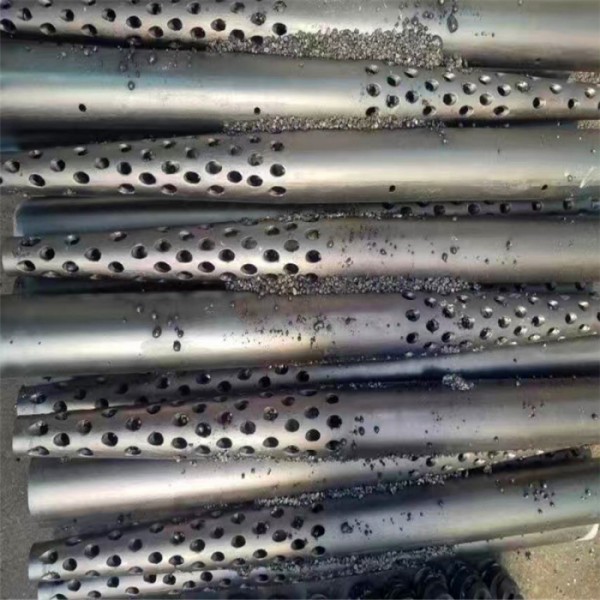 Experience Unrivaled Durability With Silicon Carbide Tubes
Experience Unrivaled Durability With Silicon Carbide Tubes
Silicon carbide tubes are widely utilized across industries due to their durability, corrosion protection and ability to withstand extreme temperatures. Available as oxide-bonded tubes or carbon bonded (isopressed).
With an incredible Mohs hardness rating that rivals diamond and impressive thermal conductivity and acid resistance properties, this game-changing ceramic material is an integral component in many demanding industrial applications.
High Temperature Resistance
Silicon Carbide tubes are known for being exceptionally strong and capable of withstanding extreme temperatures, making it the ideal material for long-lasting ceramic tube production. Silicon Carbide Tubes have proven popular across various industrial sectors due to their durability and longevity, making them an excellent solution.
Silicon Carbide is an inert material which can withstand high temperatures without losing its mechanical strength, thus making Silicon Carbide Tubes ideal for applications across various industries and applications. They maintain their strength at temperatures up to 1600oC making them resistant to corrosion and abrasion making them perfect for tube form uses such as aerospace engineering.
Silicon Carbide Tubes' exceptional temperature resistance and chemical inertness enable them to offer thermocouples unrivaled protection from corrosive gases or high pressure conditions, and come in various diameters and lengths for different applications.
we are a premier provider of Silicon Carbide Tubes to various industries. Our tubes can be found in applications including electric furnaces, metallurgical sintering furnaces, medium frequency furnace forging applications and semiconductor furnaces; as wafer tray supports and paddles. Their exceptional electrical conductivity and low coefficient of thermal expansion capabilities help them provide efficient heating/cooling while saving energy during kiln runs.
Excellent Corrosion Resistance
Silicon Carbide is one of the hardest, most durable industrial ceramic materials on the market today. Thanks to its resistance to extreme temperatures and corrosive chemicals, this material has revolutionized industries worldwide. Additionally, its superior strength compares favorably with traditional materials while providing great thermal conductivity properties.
Metal can withstand intense heat and pressure without expanding or suffering damage, making it the ideal material for use in kilns. Furthermore, its long operating lifespan means less maintenance needs are necessary and therefore lower energy costs over time.
Tunnel, shuttle and roller kilns all utilize heat conduction tubes; heat treatment furnaces utilize them as carburizing, nitriding and annealing furnaces in order to achieve consistent metallurgical properties in treated materials. Heat conduction tubes like these offer effective heat conduction capabilities despite high temperatures, corrosion levels, wear rates and temperatures of over 1,000 degrees Fahrenheit.
Silicon carbide tubes come in sintered, reaction-bonded, and recrystallized varieties - the three most widely-used varieties. Their applications span across numerous fields. For instance:
High Mechanical Strength
Silicon Carbide stands out among industrial materials with a combination of properties that set it apart. Its durability and resistance to corrosion and extreme temperatures makes it a powerful asset in industrial processes and increasing efficiency, while its thermal conductivity and chemical inertness helps increase energy efficiency - ultimately saving money over time.
Silicon Carbide boasts high mechanical strength, making it capable of withstanding heavy loads without succumbing to bending. This makes it perfect for use in high-temperature furnace applications like powder sintering in metallurgy, chemicals and glass industries; additionally it works well as a thermocouple protection tube by protecting temperature sensors in harsh environments from damage.
Silicon carbide's high hardness enables it to be machined with tight tolerances, producing strong components for wear-resistent applications such as seals, nozzles and pump components that must withstand wear due to wear resistance in high temperature corrosive environments. These applications include seals, nozzles and pump components which require resistance against abrasion and corrosion conditions such as those encountered when working with high temperature chemicals such as hydrogen peroxide and propylene oxide.
we provide sintered and reaction-bonded silicon carbide as well as recrystallized silicon carbide to suit a range of industrial applications. Each type has distinct features and characteristics such as flexing strength at high temperatures, oxidation resistance and density; to find out which one best suits your application please speak to one of our team members today.
Excellent Thermal Conductivity
Silicon carbide tube boasts excellent corrosion and wear resistance, but also stands out with outstanding thermal conductivity, making its tubes better at dissipating heat efficiently, which is essential in certain applications. Furthermore, these tubes can withstand high temperatures without suffering in strength or durability.
Silicon carbide materials have long been valued by the metallurgy and power industries due to their superior resistance against wear and corrosion, making them perfect for applications such as transporting slurry such as sand, coal ash or other materials. Their abrasion- and corrosion-resistance make silicon carbide an excellent material choice for such industrial uses.
These tubes can also be utilized as furnace linings and supports, offering exceptional temperature resistance and strength that makes them suitable for applications including hard pot distillation, rectification tower tray heating systems and fuel furnaces.
Producing silicon carbide powder requires multiple processes, such as reaction bonding and pressureless sintering. Reaction bonding involves pouring molten silicon onto a preform composed of silicon carbide and carbon, where it reacts with it to produce additional silicon carbide that bonds without melting and yields a dense and sturdy product. Pressureless sintering involves compacting SiC powder into an inert atmosphere and heating it before compacting, which allows its particles to bond without melting for applications that demand high purity and mechanical strength.